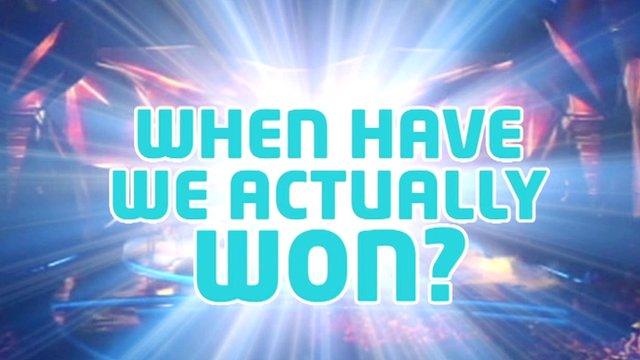What is the Eurovision Song Contest?
- Published
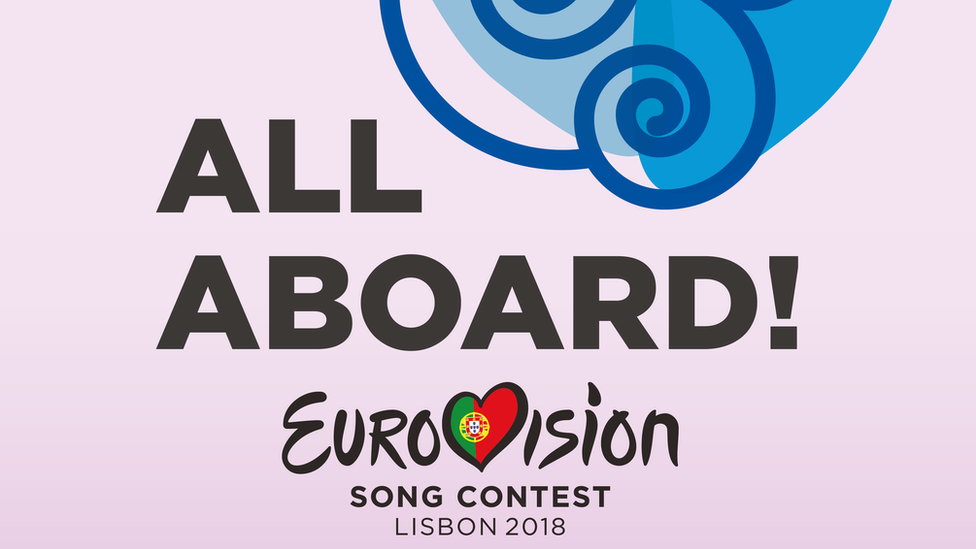
It's that time of year again! Yes - the annual live extravaganza of multicultural entertainment that is the Eurovision Song Contest kicked off on Tuesday night.
This year, the competition is taking place in Lisbon in Portugal - the first time ever that this country has hosted the event.
On Tuesday and Thursday, 37 countries battled it out in two semi-finals at Lisbon Arena for a place in the final show on Saturday.
The following 20 countries have all made it through: Albania, Australia, Austria, Bulgaria, Cyprus, Czech Republic, Denmark, Estonia, Finland, Hungary, Ireland, Israel, Lithuania, Moldova, The Netherlands, Norway, Serbia, Slovenia, Sweden and Ukraine.
UK entry SuRie forecasts this year's competition, ahead of the contest getting started
They will all join the Big Five - France, Germany, Italy, Spain and the UK, plus host country Portugal - who get put through automatically to the final.
The event - the 63rd time the competition has taken place - will be hosted by Filomena Cautela, Silvia Alberto, Daniela Ruah and Catarina Furtado.

When did it start?
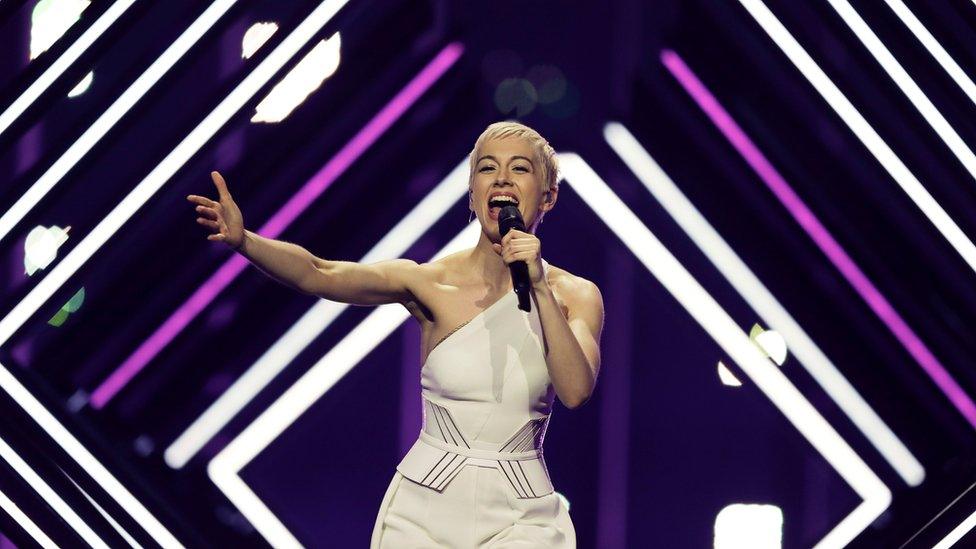
Here is the UK's performer SuRie practicing her routine!
The first ever Eurovision Song Contest took place on 24 May 1956, when just seven countries took part. (Now there can be as many as 43 countries!)
The songs were much more simple and the music was performed by a live orchestra.
The competition is 1956 was also the only time that each country performed two songs.
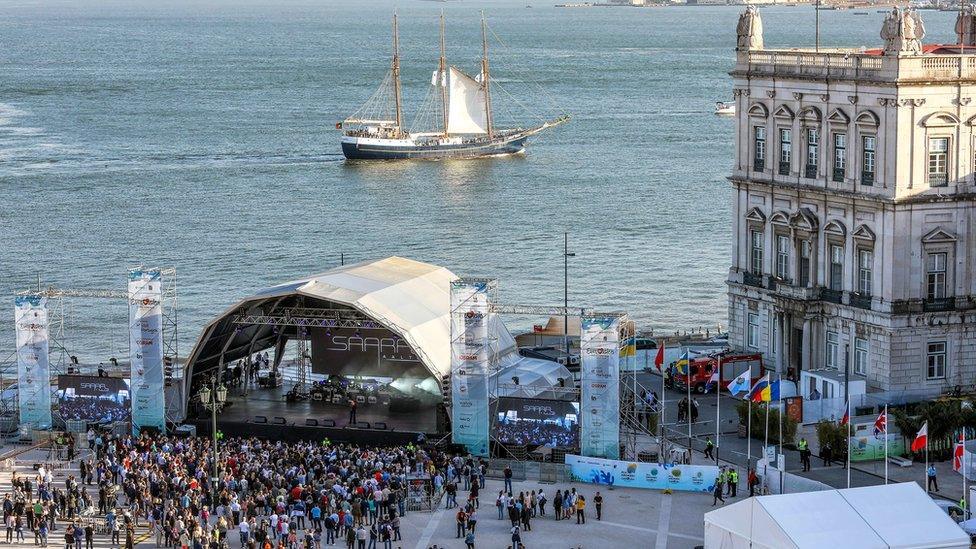
The Eurovision Village was taking shape in Lisbon's Praca do Comercio earlier in the week
The idea for the contest was put forward by a man called Marcel Bezencon who worked for the European Broadcasting Union (EBU) - an organisation of TV companies in and around Europe.
It was inspired by an Italian song contest called the Sanremo Music Festival and was designed to test what could be done with early live TV technology.

How does the contest work?
5 things you never knew about UK entry SuRie
Countries from all over Europe - and a few from outside Europe - send a song and performer(s) to sing in the contest.
Each country can have a maximum of six people in their act, and the song must be no longer than three minutes and not released before 1 September 2017.
Everybody has to sing live, but no live instruments are allowed.
Most countries need to sing in one of the two semi-finals to gain a place in the grand final.
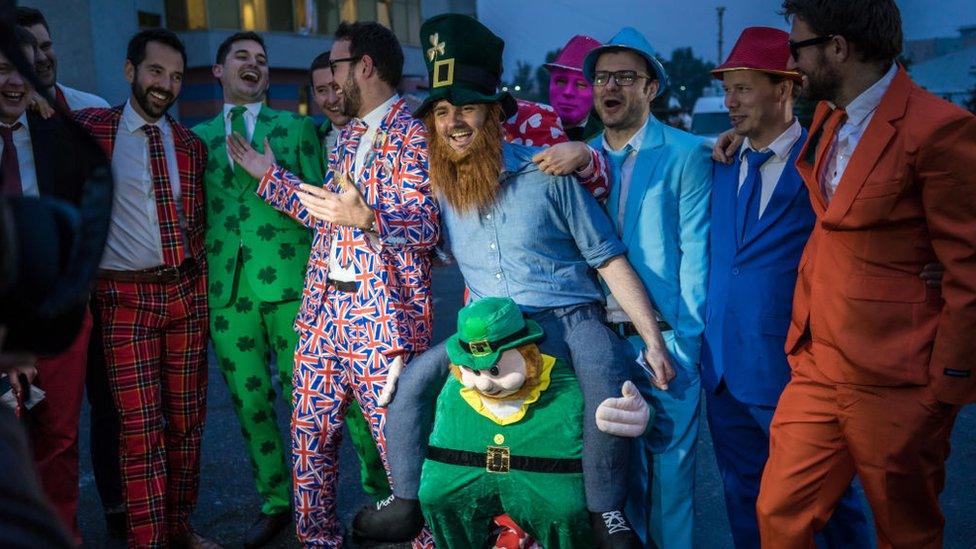
Lots of people get into the spirit of Eurovision by dressing up in costumes
The UK, France, Germany, Spain and Italy (called the 'big five') all go straight through to the final as they give the most money to the EBU. The previous year's winner also goes straight through - so that is Portugal this year.
It is usually hosted by the country that won the year before, which is why the 2018 contest is taking place in Lisbon.

How does voting work?
The winner of the Eurovision Song Contest is decided by all of the countries involved, with each nation getting to award points to the other countries that they want to win.
The scoring is based on a mix of viewer votes and the opinions of a music expert jury.
This is because some people think some countries just vote for their neighbours and friends instead of voting for the best song (for example, Greece and Cyprus usually give each other points, while the Scandinavian countries - Norway, Sweden, Denmark, Finland and Iceland - often exchange votes).
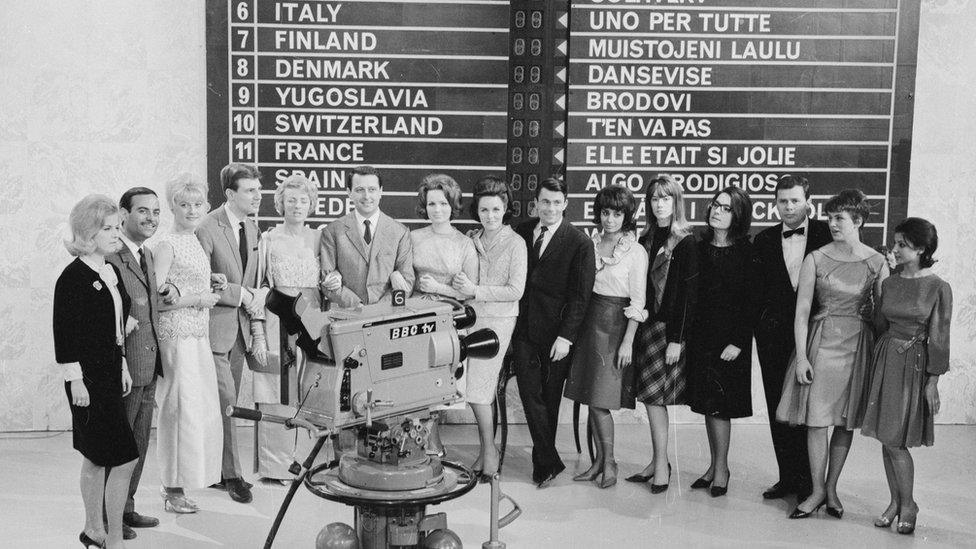
Here are all of the contestants from the 1963 Eurovision Song Contest - it's a much bigger event now!
The idea of having an expert musical jury decide some of the result is to try to balance this out.
So for Tuesday's semi-final, televotes made up half of the result, while the other half of the result was already determined by a professional jury on Monday night.
Once all of the acts have sung, voting is opened for about 15 minutes either by phone, text or an app.
Viewers can vote up to twenty times, but cannot vote for the country they are voting from, in order to keep it fair.
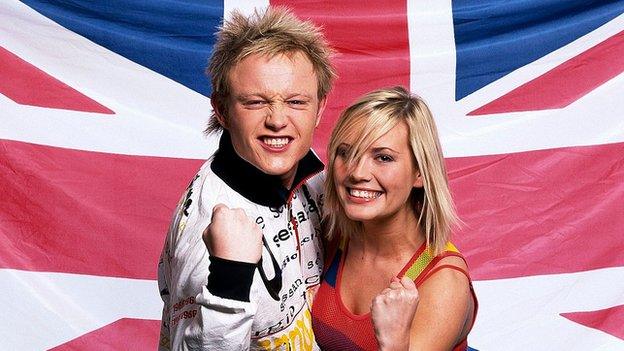
Nil points: UK duo Jemini didn't score a single point in 2003
Voters award a different number of points to different countries, depending who they liked the most. The most points that can be awarded to a country is the famous douze points - or 12 points.
Sometimes countries end up scoring nothing and get the dreaded 'nil points'.
At the end of the grand final, the winner is the one with the most points once everything is added together.
They will perform their song once more and get to take home the iconic glass microphone Eurovision trophy.

Is the UK any good?
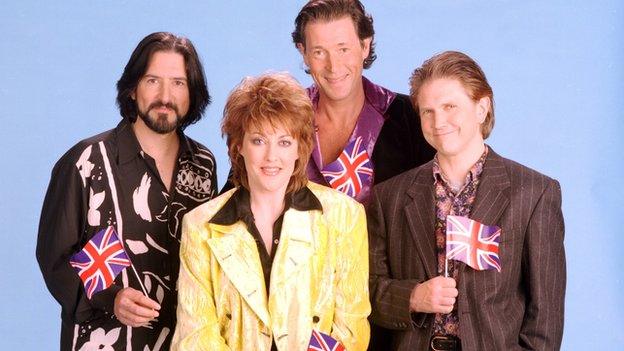
The last time the UK won was in 1997 with Katrina and the Waves
The UK has come second 15 times before and won the contest five times. Ireland has won seven times, which is more than anybody else.
In 1999, acts no longer had to sing in their national language, so many countries began singing in English.
Since then the UK has done pretty badly - finishing last in 2003, 2008 and 2010.

How can I watch it?
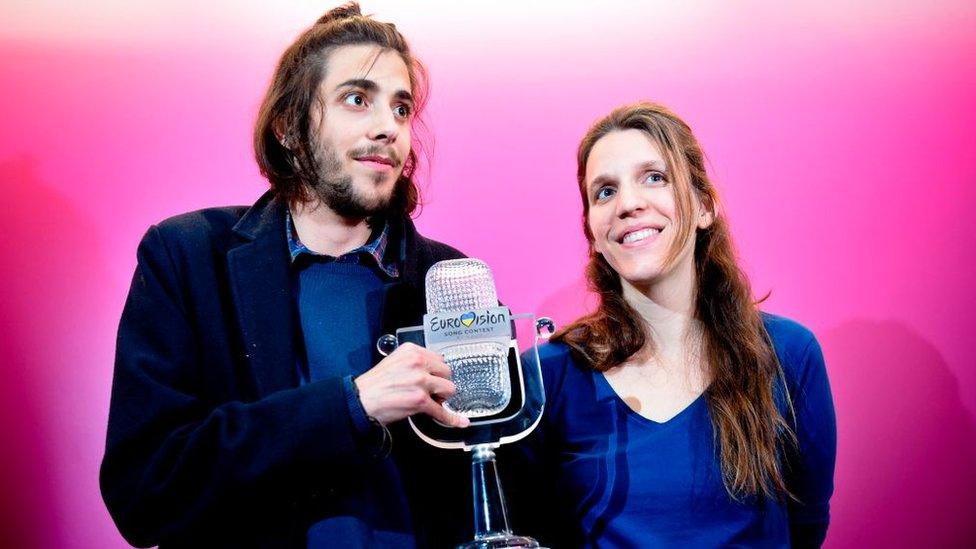
Here is last year's winner Salvador Sobral with his sister Luisa and the famous trophy
Around 200 million people tune in every single year to watch the action.
If you live in one of the 43 participating countries, you can watch on television via your national public broadcaster, which in the UK is the BBC.
The grand final will be on BBC One at 8pm on Saturday 12 May.
- Published8 May 2018

- Published3 May 2018
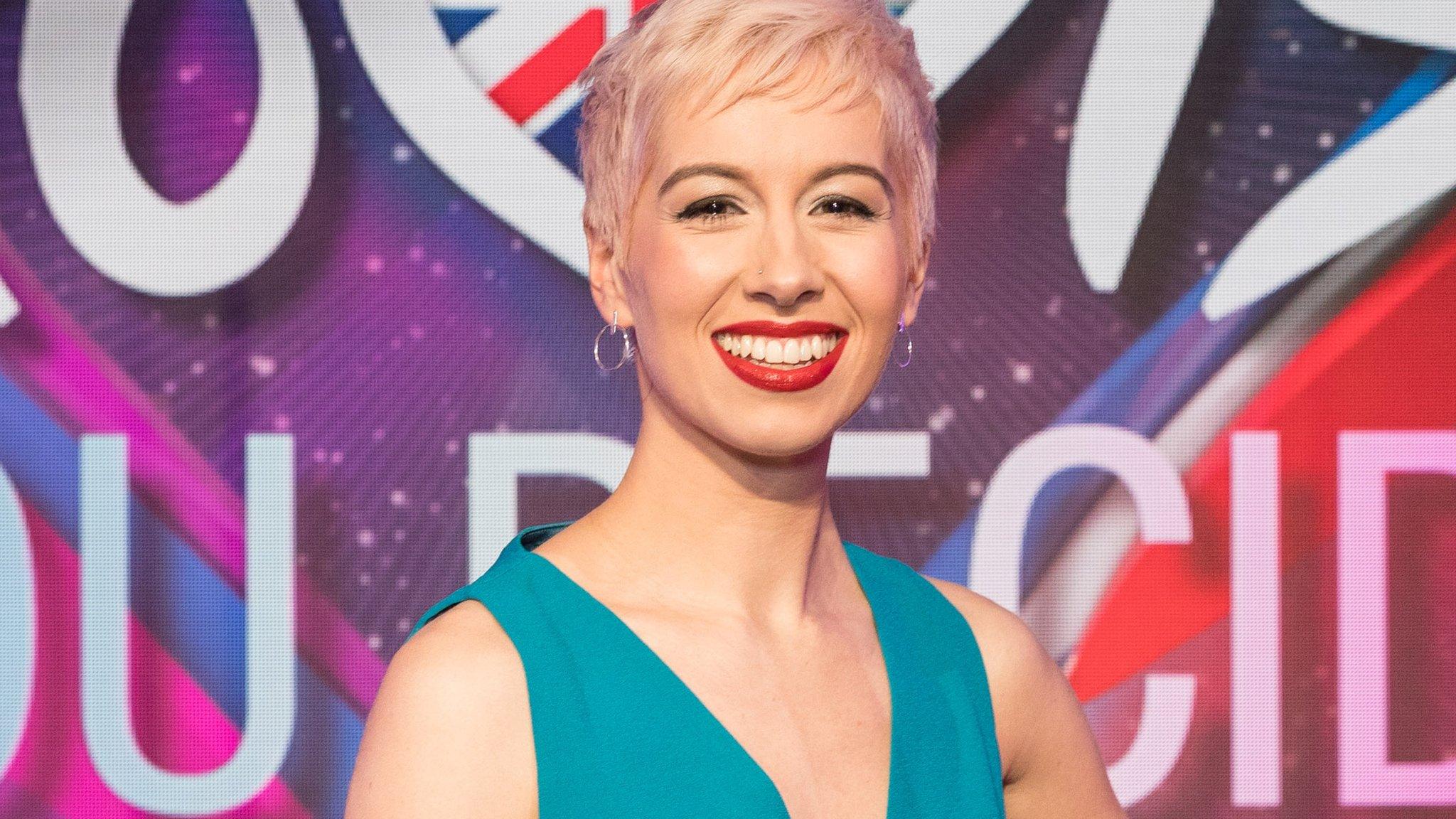
- Published29 February 2016
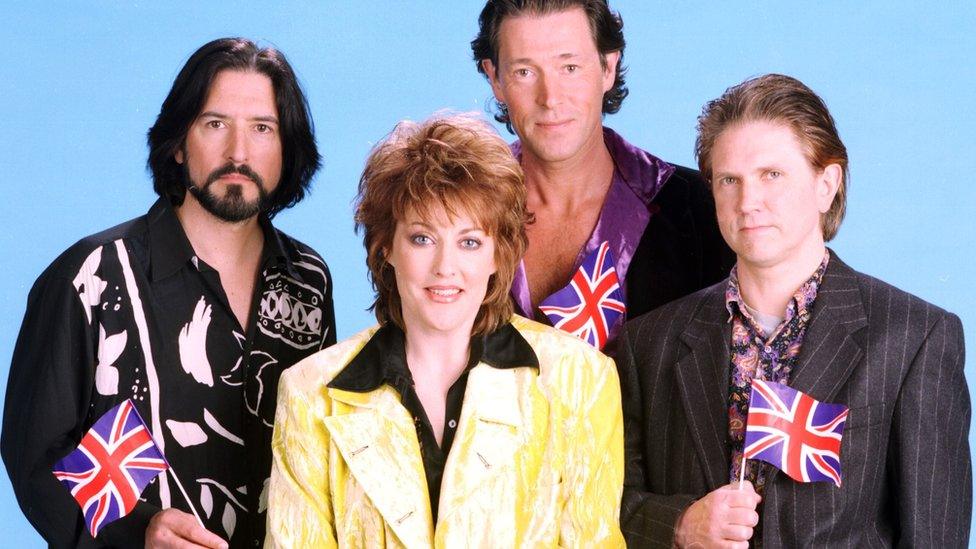
- Published27 February 2016
